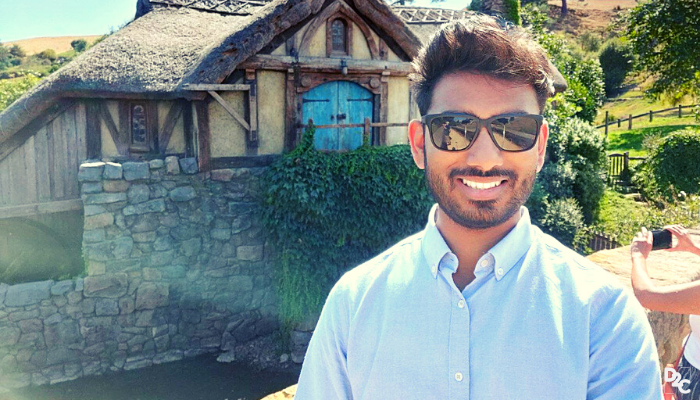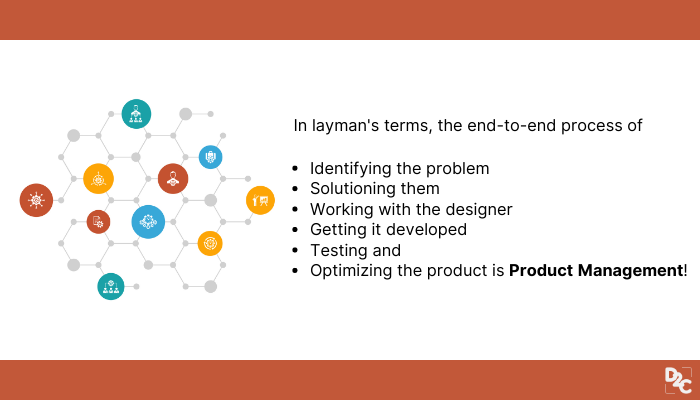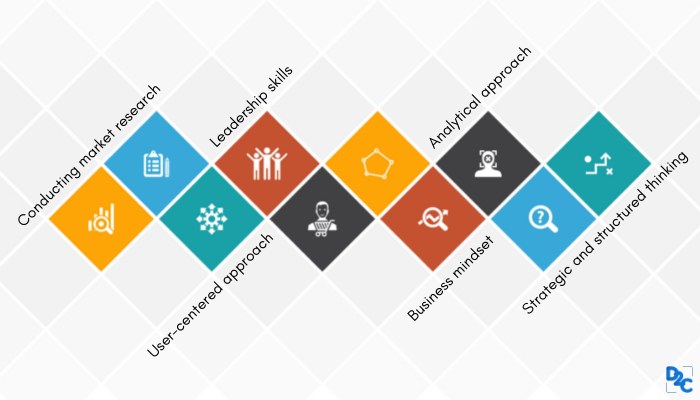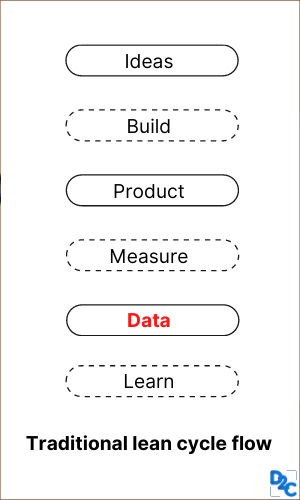“Product management is not about being an MBA or having a CS degree.” - In conversation with Saurabh Gupta, Head of Product, Wynk Music, Airtel

You may have just learned about product management and might be wondering, “What major do you need to be a product manager?” or “Is becoming a product manager easy?” or maybe even thinking “What critical skills do you need to list on your resume for the post of a product manager?” If you are reading this, we both know that the list of questions is as endless as the ocean! Product management, being a new kid on the block has puzzled many. If you aren’t sure what exactly it entails and want to test the waters, here is a piece in conversation with Saurabh Gupta, Head of Product, Wynk Music, Airtel to help you get a better sense of the job.
But first, let’s start by touching on what product management is in the first place. (We bet, this is explained in the simplest words ever.)
Let’s understand this with an example of the Zomato app. First, break the app into multiple pages - home page, search, the ordering system, payment options, reviews page, etc. each one of these represents a different product. Now, there is a person that ensures everything is performing perfectly from end to end, decides what goes inside each page, works with the design and engineering team, rolls it out in the market, works on the analytics, studies whether it requires any changes and target metrics are met or not. All such tasks and responsibilities come under the profile of a product manager.
In broad terms, a product manager role is responsible for the development of products for an organization. And the process of identifying the problem and the areas to work, solutioning them, working with the designer, getting it developed, testing, and optimizing the product is product management. Easy to get?

Product management has gained popularity over the last 10 years or so. (Thanks to great product companies like Apple, Facebook, and Google!) Here is how it evolved over the years.
(Darwin's) theory: Evolution of product management
From where and when did the role of product management come in the industry? Well, let us put this straight - no one know the definitive history of product management! Often people cannot make heads and tails of the roles and responsibilities of a product manager and are usually confused with marketing and UX roles. If you will go down to the last detail, it will become apparent that how the original product managers existed even before 10-15 years in the FMCG sector. (However, they were mostly responsible for marketing function - finding the right product, in the right place, at the right price, and using the right promotion.)
With time product management in FMCG transformed into a marketing communication role but as it stepped into the doors of the tech world, the separation of product development and production could not be bifurcated. Why? Because just like products of the FMCG companies, the newly established tech firms could not just rely on the packaging and pricing of a commodity to succeed! This gave birth to the inclusion of product development into the product management role!
A product manager is a mini CEO: Yay or Nay?
First things first, let's understand that this statement is subjective to companies and their products. Some companies have product management as a stand-alone function where the product managers report directly to the CEOs. Because when there are multiple roles, especially when engineering and design come into play, you need someone to tie all the loose ends together. And this is where the term mini CEO becomes evident.
As product management continues to evolve, it’s becoming a role where you may be an engineer, a designer, a founder, or a product manager - someone who has the authority to make tough prioritization calls and stick products to customers and vice-versa. To get down to brass tacks, presenting to you Saurabh Gupta, Head of Product, Wynk Music, Airtel.
Meet the real McCoy!
This guy from a small district in Gwalior, who now heads the product (Wynk Music Airtel), didn't even know what NITs and IITs were until 9th grade. He moved to Gwalior later in 11th standard and began studying for engineering entrance examinations, eventually getting into NIT Allahabad to study computer science. After accumulating two years of job experience, he took the CAT and went on to IIM Ahemdabad to pursue an MBA.
But if you are wondering things were served to him on a silver platter, then no my friend, he worked hard and gave three CAT attempts to achieve his dream of landing on the coveted campuses of IIM ABCL.
When in IIM A, he focused his energy not just on academics, but ensured that he works on a well-rounded personality so that he is able to emerge as an enthusiastic and positive people leader. He took active participation in the dance club, music club, mentorship club, etc.


It was during his summer internship tenure at Mahindra&Mahindra as a marketing intern he realized his love for product management. He says,
Internship should be about realising do you really want that particular role. Do you see yourself as a perfect fit in that company for that role? One should remember that internships are a trial of what you will become after some years. So get an understanding of what the role and the company is like. Do not rush blindly after the PPOs/PPIs, as they are the outputs, if you are the perfect fit, you will automatically fetch one!
During his final placements, he accepted the role of a product manager at Info Edge India Ltd. (Shiksha). He learned plenty of insights and eventually decided to land a job where he is the user of the product itself. Oh, we would take a pause to mention he is a music buff! It is his love for music that landed him in Wynk Music later! You name the instrument, he has it at his place - He loves playing acoustic guitar, digital piano, harmonica, Cajon, and whatnot since his undergrad days.
Did we mention that he received multiple awards early in his career? Well, this is what this amazing leader has to say about becoming a successful product manager:
- You have to really enjoy what you are doing. When you love your work, you just put your blood, sweat and tears to make it a success rather than waiting for others to take up on the task to finish it.
- Figure out what the problem is, sit down, observe, take notes, create the right metrics, and then reach to teams.
- Mentorship is something that really leaves an indelible mark on someone’s career especially when provided early on in your career. It need not be your manager alone, but can be anyone you respect.
- Empathise, from users, to business to all the stakeholders. Once you get pass that, everything will become easy. Bring everybody together, form a language that everybody understands, and voila!
- Challenge standards, come up with ideas, analyse them throughly and there you go.
Some much-needed gyaan for to-be product managers
Data is your mother! |
As a product manager, you must know what are the problems of the end-users. Talk to the users, do telephonic calls, meet them, analyze your notes, create a hypothesis, and merge it with data. Always remember, product-related decisions are hard to make unless you have good data. Often the feedback from the customers has to be validated through data because they need to learn if their ideas were successful as part of a build, measure, and, learn cycle.
|
A product manager has to create a solution. No buddy! |
A product manager does not have to always come up with a solution. A solution can come from anyone, it can be an innovation from the design team or an exceptional suggestion from the tech team, but taking all of these into account and prioritizing them, understanding what are the metrics that will move, is the work and responsibility of a product manager. NOTE: Roadmap creation and prioritizing are the must-have hard skills required to be a product manager! |
Digitization, yes! But what’s more? |
Product managers existed 15 years back also. But they had a very different kind of role (often a vague one - something of a program manager or a project manager). Yes, digitization is the major driving force behind the increased demand for product managers. But with that people also started to realize the importance of this role with the inclusion of the engineering space. Whenever there is engineering, design, and business interaction, you will need a product manager to bring everything under one roof. |
Only products like apps need product managers. Duh! |
Let’s take an example of an Airtel DTH box, which is clearly hardware. But this department at Airtel also has product managers because the company needs someone who can understand the business side and work with the hardware engineers as well, thus stitching everything together to form a perfect hardware box. |
I don’t have a CS degree, can I become a Product Manager? Of course, you can! |
A computer science degree can benefit you but this is not etched in stone. Let’s continue with the example of the ‘Search’ option in an app as a product. Now, this product will have a front end and back end section also. The Product Manager has to understand the algorithm, what the tech team is working on, here a CS degree will make things way easier to understand. BUT, let us quote this again, "A CS degree is not mandatory." |
On this, he says,
I have seen product managers who are not even CS engineers. Infact, 50% of my product managers are not from CS background. Moreover, talking about the relevance of MBAs in becoming a product manager is again not a mandatory requirement. The only reason behind its preference is that the aspect of soft skills and communications is zeroed in on the curriculum of MBA, which gives a slight push on the requirement of a B-School degree. (But not at all a necessity).
All in all, becoming a Product manager has nothing to do with an MBA or a CS degree. It is all about an individual!
An exciting and challenging world, where the user's problems will never be 100% solved
It cannot be gainsaid that stakeholder management is a cakewalk especially when the companies rigorously target for growth. Every team has its own agenda, for instance, the engineers will have a technical take whereas the designers might have a totally different perspective, so everyone has their own priority and opinions. Aligning all of them and bringing together product people of all stripes is always a tough part.
Moreover, it gets a bit challenging to focus when different team members pull your attention in different directions. Product managers should stay cautious from getting absorbed into a pattern of stamping out emergencies as they erupt. They need to learn to balance their time and keep the team and their decisions centered on facts.
When talking of the challenges faced by the product managers, empathy and understanding play a big part. For instance, for a non-creative background person, it'll always be tough to understand that why a certain deliverable (like a design or a content piece) takes hours to be completed. So, it is of utmost importance to empathize and understand their point of view and deal with the different ideas and personalities graciously.
Are you an aspiring Product manager? Do you have these skills?

Product management relies on a wide range of skills. Some of the soft and hard skills that can make sure your resume and you are up to the job are:
- Analytical approach
- User-centered approach
- Leadership skills
- Business mindset
- Conducting market research
- Empathy
- Strategic and structured thinking
A product manager should bring his passion for making people's lives better to the table from day one. It is more about an individual rather than his qualification or experience. If you have serious people's skills and can support and empower others by understanding their strengths and weaknesses, your work is half done. Another key point in mastering this role is strategic and structured thinking. It is your responsibility to give structure to randomness by always keeping data at the back of your mind. In case of emergency, always think about the factors that contributed to your past decisions and their outcome! All in all, remember that as a product manager you will be the keeper of all the product knowledge, and these skills can shape a road map to your success.
NOTE: Full-time MBA students are eligible to register for Airtel iCreate 2021. Apply before the deadline to grab direct interviews or incubation opportunities at Airtel.
Liked this article? Read more here:
- HBS And Stanford: Ace MBA Interview With These Expert Tips
- How to approach product management after tech consulting - Banreet Kaur, Product @ Microsof
- Top 6 jobs that won't require a bachelor's degree in the next decade!
- From leaving Stanford at 21 to becoming the ‘Czar of Indian IT Industry’ - Azim Premji’s thought that brought success to Wipro
- 21 points that can make your resume any HR's favourite
Login to continue reading
And access exclusive content, personalized recommendations, and career-boosting opportunities.















Comments
Add comment